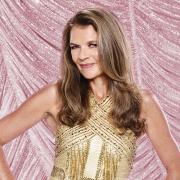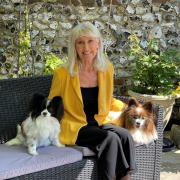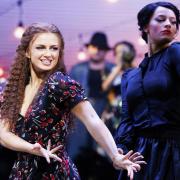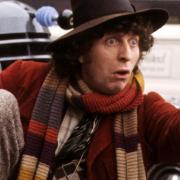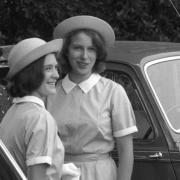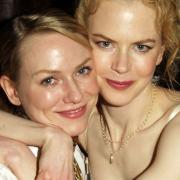Forty years after The Day of the Jackal was published, Kent Life presents an exclusive interview with Ashford's Frederick Forsyth and an opportunity to win an anniversary edition of his most famous thriller
Forty years after The Day of the Jackal was published, Kent Life presents an exclusive interview with Ashford’s Frederick Forsyth and an opportunity to win an anniversary edition of his most famous thriller.
When Frederick Forsyth was a boy growing up in Ashford, he could never have imagined that one day he would become one of Britain’s leading novelists with an enviable reputation for producing meticulously researched thrillers filled with fascinating technical detail.
Working as a foreign correspondent in the 1960s gave Forsyth the perfect credentials to make his stories plausible and authentic. His best-known work, The Day of the Jackal, is a classic among thrillers, using real people and events to dramatic effect.Originally published in 1971, a new edition of the book has been produced to mark its 40th anniversary.
His own story, however, begins in an age far removed from the brutal world of political intrigue and professional hit men. Frederick Forsyth was born in Kent in 1938. He was an only child and his parents were Ashford shopkeepers.
“My father ran a fur shop on the first floor of number 4, North Street and my mother a dress shop on the ground floor,” explains Forsyth.
“Dad spent his time cutting and creating fur coats in the days when they weren’t politically incorrect. It was a lucrative business.”
He has clear memories of those days. “To me, as a small boy, the shop was an extraordinary adventure playground. There were great skins hanging up and offcuts on the floor. I had a magnificent Davy Crockett hat made up of offcuts with a real wolf’s tale hanging down the back.”
He recalls with great clarity the dark days of the Battle of Britain. “I was only two but in my mind are freeze-frame images of the fighters wheeling and turning over Ashford. I was fascinated by soldiers and tanks and the whole paraphernalia of war. “When I was five, in 1943, Dad took me to the fighter base at Hawkinge where I was made a great fuss of by the fighter pilots. One of them picked me up and plonked me in the cockpit of a Spitfire. It was a great moment.”
Forsyth also recalls childhood visits to the home of the writer H.E. Bates, a family friend, at Little Chart. He would often play cricket on the village green with Bates’s two sons, Richard and Jonathan.
After the war Forsyth won a scholarship to Tonbridge. “It wasn’t a happy period in my life,” he recalls with a hint of sadness. “The house I was in was obsessed with sports. I wasn’t a particularly good sportsman or athlete.
“I was the only scholar in the house, therefore a swot, and that led to a considerable amount of bullying.”
Like thousands of schoolboys, Forsyth was mad on aeroplanes. His bedroom ceiling at the family home in Ashford’s Elwick Road was covered with models of Second World War fighter aircraft. One day his attention was caught by an advert in an Airforce magazine for an RAF scholarship.
“The idea was to try and get youngsters to develop the flying bug and then join the airforce as pilots,” explains Forsyth. “Needless to say, I didn’t need any encouragement. You chose your local flying school and the Airforce would pick up the tab for 30 hours of dual and single instruction.
“I picked the flying club at Bluebell Hill, near Rochester, but the problem was how to get there. I was 16 at the time and I didn’t want to learn during the school holidays. Dad had bought me a Vespa scooter which had just been introduced to Britain. I managed to store it in an allotment shed at Tonbridge, which I rented for a small fee. I had my flying suit, which neatly doubled as a motor cycling suit, and off I would go to Bluebell Hill.”
At Tonbridge flying lessons were strictly off limits but that didn’t deter Forsyth. “Even though I wasn’t at all interested in sport, I surprised everyone by suddenly volunteering for cross-country runs, providing I could go alone. The school agreed.
“I would set off in running shorts, jog to the shed and get changed into the flying suit before travelling to Bluebell Hill for an hour’s flying instruction. With the scooter safely back in the shed, I’d jog back to school in my shorts which were always pristine white and without a speck of mud of them. I got away with it about 20 times.”
Forsyth began flying in open-top Tiger Moths and regularly flew over the Medway, pretending that he was Baron Manfred von Richthofen, the legendary fighter pilot known as the Red Baron.
“I left school at 17 and desperately wanted to go into the RAF, but I was too young, so until I was eligible I went to Spain to learn a fourth language. I already spoke French, German and Russian,” he says.
Forsyth finally got his wings at the age of 19 and at the time was the youngest pilot in the RAF. Eventually, he satisfied the flying bug and embarked on fulfilling his next ambition – to be a journalist.
“I didn’t have any lust to write,” he tells me, “but I wanted to travel the world as a foreign correspondent. I imagined Lord Beaverbrook, who owned and ran The Daily Express at the time, would be happy to finance me.
“Firstly, I needed to serve my apprenticeship in the provinces. My father took me to see the editor of the Kentish Express, who told me to go for a provincial daily, not a weekly newspaper.”
After three years with the Eastern Daily Press in Norfolk, Forsyth came to London and joined Reuters. It was his time in the Paris office in the early 1960s, at the heart of the campaign to assassinate President de Gaulle, that the idea for The Day of the Jackal was born. However, it was seven years before the book was written.
Forsyth had returned from covering the Nigeria/Biafra war and was homeless and penniless. He thought: “I’ll write a novel.” He stayed with a friend, slept on the couch and wrote The Day of the Jackal on a typewriter at the kitchen table. It was the start of Forsyth’s career as a novelist.
Best-selling novels, including The Odessa File and The Fourth Protocol, followed and in addition to producing highly acclaimed thrillers, he writes a weekly column for The Daily Express. He is the consummate archetypal journalist and author – still researching, still travelling, still writing.
But when Frederick Forsyth looks back, he could be forgiven for thinking his fascinating and very varied life resembles, appropriately, something from the pages of fiction.
WIN A Jackal and a Cobra
The 40th anniversary edition of The Day of the Jackal is published by Hutchinson at �20. We have two copies of the classic thriller, plus five copies of the author’s brand-new international bestseller, The Cobra to give away. Just answer the following question:
Q: Who is The Jackal hired to kill?
a) Her Majesty The Queen
b) John F. Kennedy
c) General De Gaulle
Email your answer to: editor@kent-life.co.uk quoting ‘Jackal’ or ‘Cobra’ (depending on your preferred book), or send your answer on a postcard to:
Kent Life, Jackal /Cobra competition, Baskerville Place, 28 Teville Road, Worthing, West Sussex BN11 1UG
Only one entry per household and Archant terms and conditions apply (see website for details).
Deadline for entries: 14 October





